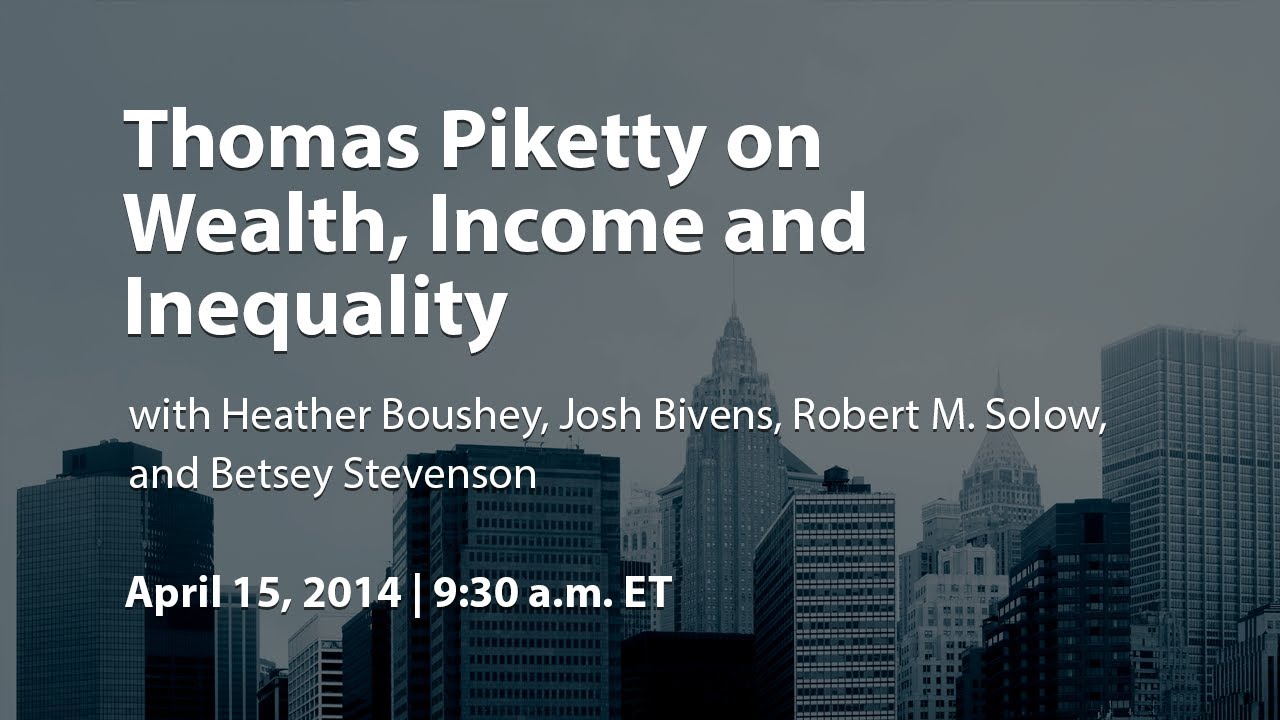
Thomas Piketty’s Capital in the Twenty-first Century is a balanced approach to the major theme of the global economical inequality. He believes that not only does capitalist growth not reduce inequality; it increases it.
Here are some of the outline summery of Jeff Faux’s critical review in The Nation magazine:
Thomas Piketty just tossed an intellectual hand grenade into the debate over the world’s struggling economy. Before the English translation of the French economist’s new book, Capital in the Twenty-first Century, hit bookstores, it was applauded, attacked and declared a must-read by pundits, left, right and center. For good reason: it challenges the fundamental assumption of American and European politics that economic growth will continue to deflect popular anger over the unequal distribution of income and wealth.
sing data and computer power unavailable to Kuznets, Piketty pored through 200–300 years of the economic history of the largest capitalist economies—principally the United States, Britain, France, Canada, Germany, Sweden and Japan. The numbers show that that since roughly 1700, with one exceptional period, the returns to capital (profits and interest) have exceeded the rate of overall economic growth. Since the rich own most of the re-investable capital, their wealth accumulates faster than the wealth of the vast majority of people whose income depends on wages and salaries.
he super-rich of the twenty-first century are somewhat different than they were in Marx’s time, especially in the United States. Most still are the heirs of fortunes made in the distant past. But those in the top tier of today’s “patrimonial capitalism” also include more recently arrived corporate CEOs and others who can set their own exorbitant salaries and leave their children both financial wealth and privileged access to education and elite networks. To the economist Piketty, the waste of resources going to the systematic enrichment of people who do not have to work for a living is particularly galling.
Piketty is not a Marxist. He sees no real alternative to global capitalism and has little interest in changing its inner workings through worker ownership, nationalization or the redevelopment or local or national markets. Like Keynes, his goal is to make markets a more efficient instruments for human progress. But although he supports the standard progressive agenda of financial regulation, public investment in education and infrastructure and aid to the poor, he thinks that in a globalized economy, capital is now beyond the control of any one country—even the United States. Efforts by individual nations to constrain capital will just chase away highly mobile private investment.
The ultimate solution, he writes, is a worldwide progressive tax on private capital. Piketty understands that this is now utopian. But he argues that the tax is technically feasible and could be gradually adopted region-by-region.
Here Piketty seems out of his political depth. In order to avoid Marx’s apocalyptic conclusion, he skips around a central implication of his own analysis: that the upward redistribution of wealth also generates an upward distribution of political power that perpetuates inequality. An enforceable global tax on capital ownership would require dramatic political shifts to the left within the major economies—at least the United States, Europe, China, Japan—and unprecedented cooperation among these economic rivals to face down transnational capital and force the rest of the world to accept it. Eyes will roll.
Still, Piketty’s proposal sets a realistic marker for the level and scope of radical change necessary to deal with the grim conclusion of his quite credible economic analysis. The analysis makes hash of the conservative claim that there are “market solutions” to inequality, as well as the liberal hope that small-bore reforms will eventually achieve social justice on the cheap.
It also challenges the lack of urgency that infects social democratic parties in the capitalist world whose answer to inequality has been to wait for the crisis to pass and tide to come back and float all our boats.
But if Piketty is right, time is not on their side. His study confirms what David Ricardo, Karl Marx and other nineteenth-century economists perceived earlier about the machinery of capitalism: it is not only unfair, it is relentlessly and dynamically unfair. Until we make radical changes either the way it works or who it benefits, the maldistribution of wealth and political power can only get worse.

Leave a Reply